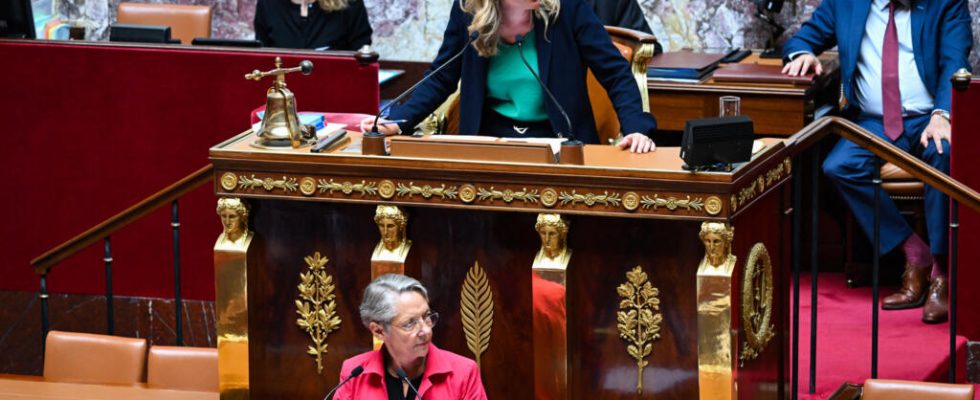The 17th motion of censure of the year is rejected, in the French National Assembly. The Borne government remains in place, despite this new attempt by the left alliance in the hemicycle, the Nupes.
Unsurprisingly, the government’s motion of censure filed by Nupes was rejected on Monday, June 12. The oppositions only succeeded in gathering 239 votes this evening, far from the 289 necessary. But the tension was again high in the Assembly.
MP PS Valérie Rabault, who carried the motion, strongly attacked the head of government Élisabeth Borne.
You are the Prime Minister who held the usage record of 49.3 over the last thirty years. You are the only Prime Minister to have triggered 49.3 before having allowed a complete examination of the texts by the National Assembly. You are the only Prime Minister to implement a pension reform that was never passed by the National Assembly. By proceeding in this way, you have opened a dangerous path, that of arbitrariness. The one that damages the rule of law that our country has courageously built over the years since the French Revolution.
Valérie Rabault, Socialist Party
Charges swept away by the Prime Minister who replied by reminding Nupes of her minority in the hemicycle and at the ballot box.
Thank you ladies and gentlemen deputies of the Nupes for having already allowed the French sixteen times to note that you do not have a majority and that there is no alternative majority in Parliament. However, ladies and gentlemen deputies of Nupes, in this moment of gratitude, I also feel a form of perplexity. With you, we are indeed living in times of inconsistency where those who have lost two presidential elections, two legislative elections, and have no majority on these benches claim to be the only legitimate ones to speak on behalf of the people.
Elisabeth Borne, Prime Minister
The coalition of left-wing parties tabled this motion to protest against what it denounces as ” pressures of the government, which had the reform adopted without a vote in Parliament raising the legal retirement age from 62 to 64 years.
